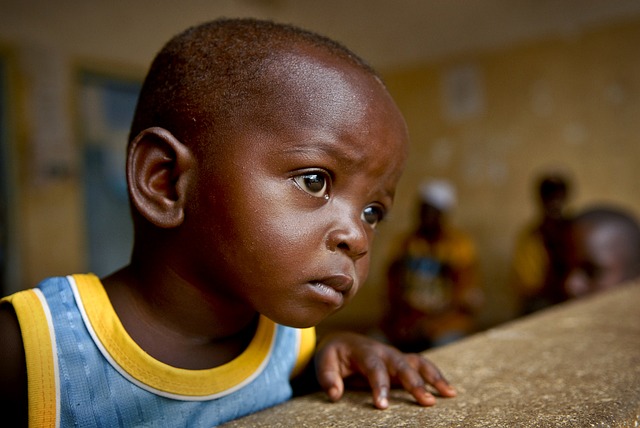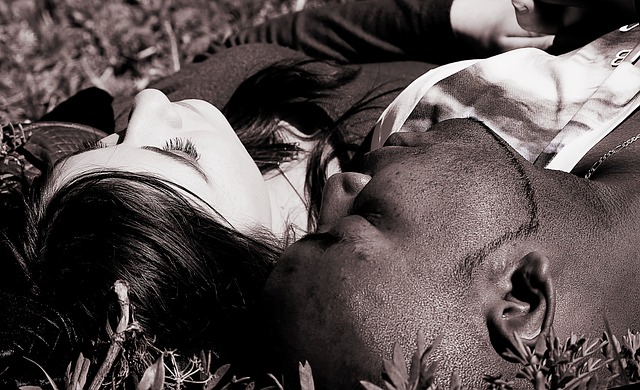Child custody after divorce in Nigeria: Child custody is a legal term regarding guardianship which is used to describe the legal and practical relationship between a parent or guardian and a child or award. This can also mean the right to legally make decisions concerning a child, provide physical custody; which is the right and duty to house, provide and care for the child.
Child custody is a desire for every well-wishing parent who loves his/her child (ren). But divorce has a way of putting this to a breach, breaking the relationship between you and your child(ren) either physically, emotionally, psychologically, that’s why most times I advise parents or couples to consider the growth of their child(ren) before choosing the option of divorce because it will either have negative or positive impacts on the child(ren), but in most cases, it always ends up having a negative impact on them.
The term “custody” itself is not defined in the matrimonial cause Act. Hence, leaving us with an undefined search. However, in “Black’s Law” dictionary, custody of the children is defined as “the care, control, and maintenance of a child which may be awarded by a court to one of the parents as in a divorce or separation proceeding”.
This takes a turn of Section 7(1) Matrimonial Cause Act, which provides: “in the proceeding with respect to the custody, guardianship, welfare, advancement or education of children of the marriage, the court shall regard the interest of those children as the paramount consideration and subject thereto the court may make such orders in respect to these matters as it thinks proper.
Subject to some cases reviewed in Nigeria, in much acclaimed and celebrated case of Nwosu vs Nwosu (2012) 8 NWLR PT 1301, the court of appeal held that on the issue of custody of children of a marriage, both parents or parties have equal rights in matters of custody of children. Therefore, a mother has equal rights with the father, and a right to protect the legal interest.
Nigeria’s position on child custody, therefore, seems to be that in regards to custody of a minor, a mother shall have the same rights and authority as the law also delegates to the father, and the rights and authority of the mother and father shall be equal and exercisable by either (any of both parties) without the other.
Another noteworthy case to be made reference is that of Tabansi vs Tabansi (2009) 12 NWLR PT 1155, the court of appeal declared that the court will mostly favour the wife especially in circumstances as where the child(ren) in question are minors, a girl child or of tender age, it will only give the father preference where it can be proved that the conducts of the wife (mother) are morally reprehensible (morally wrong and deserving critics).
Taking custody of a child after divorce comes in various forms, so, I will be discussing the types of custody you might or could be granted by the court on the ground that you have been able to prove beyond reasonable doubt that you are more befitting to be in care of the child(ren) as at divorce period or after divorce.
Types of Child Custody in Nigeria
1. Divided custody
In this situation, the child gets to be with of either of the parent in two halves of the year; residency and nurturing is done by a party for half a year then the other half of the year, the child gets to move to the second party’s house, but there’s an option for visitation privileges. Hence, the father or mother exercises total control over the child’s stay with him/her but wouldn’t be able to restrict the other party from visiting the child nor stop the child from visiting the other party as the option of provisional visitation is provided for in this type of custody.
2. Split custody
This type of custody differs from the first one stated above. In this type of custody, the court grants the custody (housing) to a parent or party and then delegates care and control to the other party. But one major disadvantage I see in this type is the fact that the partner vested with the custody privilege gets to influence the child more than the other partner chosen to care and control but in some cases it works very well for divorced couples who still have a good relationship, either as friends or just simple communication because of the child.
3. Joint custody
Like the name implies “joint”, it is a type of custody where the parties involved (father and mother) get to share equal rights and control over the child also sharing the responsibility and authority equally too thus helping both parties to get involved in decision making for the child, decisions like or which pertains to education, health and vocation among other related parents to child counseling advice so as to balance the child’s life.
But there are some limitations to this custody similarly attributed to parenting a child as couples leaving together. These limitations are Parent availability, child’s age, the child’s preference, etc.
But before this type of custody can be granted, the court in its explicit jurisdiction has to make sure both parents are ready and willing to cooperate, if not this type of custody is as good as hell if both parents or parties don’t iron out this before choosing to settle for this option.
4. Third party custody
Some instances may warrant the court to take this decision and when the court decides to do this, it may place the child under custody of a third party (under neither of the parents i.e. neither the father nor the mother but to an external personality, and this could be either permanent or temporary, if the court considers this to be the child’s best interest.
The court shall make this order under the conditions that:
- Where it is obvious that neither of the parents is genuinely interested in the welfare and upbringing of the child.
- Where neither of the parties on divorce has applied for the custody
- Where in the opinion of the court that neither of the party to the marriage is a fit and proper person to have custody of the child.
But in some situation where none of those conditions listed above has been established, either of the parents will have to get custody but other than those conditions, some exceptions might also arise which may lead to the court ruling of third-party custody for the child(ren)
Some of these exceptions are:
- Both party’s potential partners (if the divorcees are remarrying) may not want stepchild(ren)
- Where both parties are unable to prove beyond a reasonable doubt why he/she should be given custody
- If the divorce process is not completed
In determination of the type of custody which the court may grant in this case i.e. custody of a child after a divorce, Nigeria also makes use of the United Nation’s draft on this issue which is the “The United Nations Convention on the Rights of the child”, stated in this Article for child custody after divorce are:
- Article 3: The child’s right reside in accordance with the best interest of the child.
- Article 9: The child’s right not to be separated from his/her parents against the child’s will.
- Article 10: If the parents live in different countries, the child has the right to maintain regular direct contact with both parents. All countries are obliged to cooperate to give the child free access and exit of the country for family reunification purposes.
In working in line with this, the Nigerian court has duties to perform in the determination of the child’s interest which seems to be the “superior factor” amongst other factors to be determined or examined.
Read more on: Divorce as a Nigerian.
Duty of the court in the determination of the child’s interested
1. Age of the child
In every normal situation, when a child is at a very tender age, there is always a high tendency that the custody will be granted to the mother, but there is an exception to this; if the mother’s character or lifestyle is found to be morally appalling or if she lacks the financial ability (in case of single or divided custody), the court might deny the mother of the child’s custody.
And if the child isn’t too young to make decisions, he/she will be allowed to select and the court in his/her interest will grant the favoured party custody of the child.
2. Sex
Sex has a major to play in determination of interested and custody of the child as the general beliefs is that “the girl to the mother” as “the boy to his father”, but there’s no rule nailing down this beliefs, so, other factors could still come in place and the son could go with the mother and daughters goes with the father.
3. Interest/wish of the child
The child often will always want to be with the mother due to attention and the time they have both spent as the fathers in general terms spends lesser time compared to the mothers’, but as you will have the good also you will get the bad ones of the motherhood too, some mothers don’t have time and attention to give to their child(ren) and in this case where the father spends more time, the child is likely to pick the father over the mother.
4. Education and Religion
In order to secure a bright future for the child(ren) in question, the court will put in view the capability of both parents and choose one who is able to provide adequate educational funding to the child. Not neglecting religion of the parents or the child, the court will rule in favour of the child’s interest.
5. Conduct of the parents
The conduct of the parents to the marriage also plays a major role but the court will in no condition deprive either of the party to favour another because of his/her conduct which may have led to the breakdown of the marriage.
6. Nationality of Parent
Nationality of parents also matters in terms of citizenship but The courts would not discriminate between a Nigerian or Non-Nigerian parent in an award of a child custody. The primary consideration is the welfare of the child.
Those are the major court duties in determining the child’s best interest. But other things or factors may also be available for consideration. Courts may also consider the following factors when determining a child’s best interests in a child custody case:
- Physical and mental health of parents
- Any special needs the child may have
- Need for a stable home environment
- Interactions and relationships with other members of the household
- Evidence of drug or alcohol abuse
- Adjustment to the community
Discretionary Powers of the Court in Custody Cases
From the provision of Section 71(1) of the Matrimonial Causes Act, it will be appreciated that the Court has wide discretion in custody matters. The Court has the discretion to make such order in respect of custody, guardianship, welfare, maintenance, advancement or education of the child as it thinks fit.
The Role of Welfare Officers in Custody Cases
Section 71(2) of the Matrimonial Causes Act provides that: “The court may adjourn any proceedings within subsection (1) of this section until a report has been obtained from a welfare officer on such matter relevant to the proceedings as the court considers desirable and any such report may thereafter be received in evidence”.
The report of the welfare officer is expected to cover all aspects of the life and welfare of the child in question. The relationship of the child with the parents and other arrangements for the welfare and education of the child should also be included in the report. This will assist the court in making its order.
Whichever or whatever the outcome of a custody case may be, the fact is it doesn’t change the fact that you are still the father/mother of the child(ren). The court willing or not to delegate duty to you as a parent towards the custody, you should know that by the natural cause of you being a parent you have duties not duty to perform towards your child. So don’t on any reason or ground neglect your duties towards your child(ren) as it may end up hurting or hunting you.
That you and your partner are no longer together doesn’t mean you and your child shouldn’t be, it’s your husband/wife (ex) you divorced not your children.





No Comments